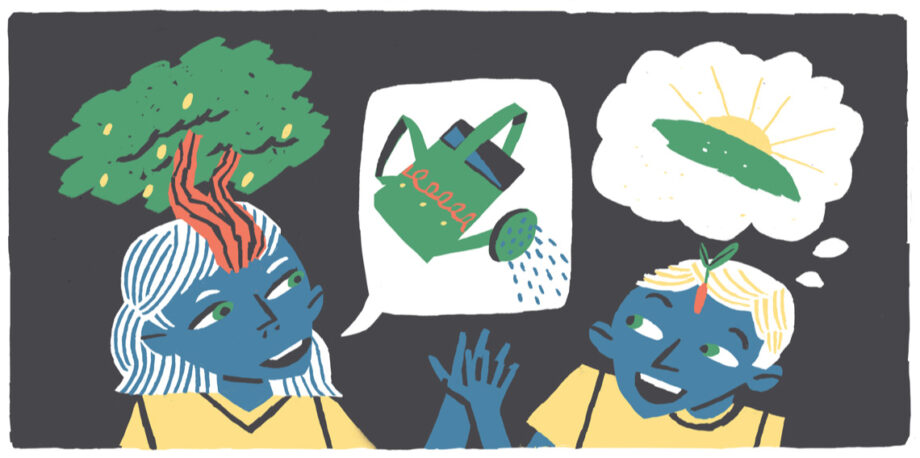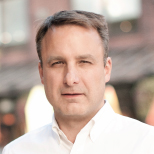July 16, 2013 — This past spring, I was asked to give a commencement speech. In a moment of weakness, I agreed to do it.
I normally don’t fret about the speeches I have to give, but this one had me sweating. What was I going to say? What lessons could I share? After worrying for weeks, I decided I would share the stories of ordinary people — ordinary people who did extraordinary things.
The first person I spoke about was named J. Edward. He was born in 1878, the son of a bricklayer who worked himself to death at the age of 32. Even though he was only 8 years old at the time, J. Edward started working to support his family, and he worked every day until he turned 90. His story is the quintessential American story: He started with nothing — but he worked hard, focused on helping his family and community, and eventually became a successful business leader.
Years later, as J. Edward lay dying, his family got a little bigger. His daughter-in-law was giving birth in the same hospital, one floor away.
The mother’s name was Joan. She gave birth to a boy with a severe bacterial infection that covered his body, and he was not expected to live through the night. Joan refused to accept that and took him home to care for him. She went without sleep for days, boiling every scrap of fabric that touched his skin, and managed to keep the infection at bay. The boy lived. Doctors told her she saved her son’s life; without her determination, he would not have survived. Like her father-in-law, Joan stood up when the chips were down, and gave everything she had for someone else.
Unfortunately, that boy’s story was going to turn out differently. He couldn’t help his mother when, 15 years later, she was diagnosed with ALS (Lou Gehrig’s disease) — a degenerative neurological disease. He could do nothing while she was in agony, slowly dying in front of him. Here was the woman who gave him his life, and against all odds saved it, and he was powerless to help her.
Unlike the current so-called American Dream — which seems to be about living like there’s no tomorrow — the old American Dream is about building a better future.
The last thing his mother told him was that she was ready to die — it would release her from tremendous pain — but she wasn’t done being his mother. Her last words to him were, “I can’t be there for you anymore, so I need you to promise me something. I need you to be the best person you can be.” She gave him one last gift: the gift of a lifelong direction. And that boy swore that he would do everything he could to follow it.
She died the next day. And he has been trying to figure out how to live up to that promise ever since.
As you probably guessed, I was that boy.
My mother and grandfather were ordinary people, but they did extraordinary things. When life became difficult, they didn’t wallow in self-pity: They rolled up their sleeves and did something for those around them and those who would live after them. In short, they lived good lives, and they gave something to the future.
Of course, many families have similar stories of ordinary people who did extraordinary things. And these people all had something in common. They all lived according to something we used to call the “American Dream.” This dream isn’t uniquely American, of course. Many people around the world share it.
Unlike the current so-called American Dream — which seems to be about getting rich without working very hard, having a fancy house and car, and living like there’s no tomorrow — the old American Dream is about building a better future. It’s a dream that says we should work hard, play by the rules, give something to our community and make sure our children have a better life than we did. It says creating a better future is more important than living comfortably in the present. I think the lesson our ancestors taught us is that a meaningful life is not one lived for ourselves; it is one lived for others. They taught us that the key to a great life is to live for people you may never live to see.
As I shared these stories, I asked audience members to consider the lessons that could guide us along the way. I asked them to be guided by hope. And I asked them to develop a sense of history. We are at our best when we see we are connected to those who came before us, those we share the world with today and those who will come after we are gone.
I don’t know what the audience made of my speech, but I know I learned something preparing it.
The challenges of the future might be met by remembering the lessons — and dreams — of our ancestors. They accepted the challenges of their time and rose to meet them. Will we?
![]()
For a complete transcript of the speech, go to ensia.us/grad.
Editor’s note: The views expressed here are those of the author and not necessarily of Ensia. We present them to further discussion around important topics. We encourage you to respond with a comment below, following our commenting guidelines, which can be found on this page. In addition, you might consider submitting a Voices piece of your own. See Ensia’s Contact page for submission guidelines.
Ensia shares solutions-focused stories free of charge through our online magazine and partner media. That means audiences around the world have ready access to stories that can — and do — help them shape a better future. If you value our work, please show your support today.
Yes, I'll support Ensia!
